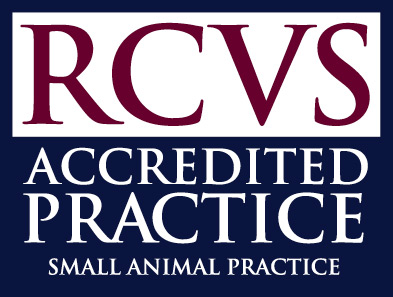Always Focus on the "job" in hand!
Poo is an significant part of a pet owners life – especially if you have a dog or an indoor cat. As pet owners, we can become a little passionate about what our pets produce. I suppose this is understandable when you think about the fact that the average dog owner probably has to pick up a couple of offerings per day, which equates to over 700 per year! If it’s not nice and ‘pick-up-able’, then there is a serious pet owner quality of life issue, not to mention a health concern for the pet in question!
So it won’t come as a surprise to say that “diarrhoea” is a very common reason for a trip to the vets, and the forward thinking pet owner will normally come in clutching a parcel of excrement in some kind of receptacle – hopefully air-tight! Now, I’ll be honest and say that while involvement with poo is an inevitable consequence of being part of the veterinary profession, it is not something that most of us particularly relish getting in contact with. Faecal samples are often essential to determine the cause of diarrhoea, but analysis of them requires laboratory assessment – normally microscopically or via culture.
I think people are often disappointed that I don’t dive into a faecal sample with a pair of tweezers or perform some kind of medieval “scratch and sniff” test after which I can pause for effect and then shout, “Giardia”! Obviously knowing the appearance of the faeces is useful, but there is a limit as to what one can glean from this!
Diarrhoea is common in dogs and cats because by the nature of what they do (and eat in many cases!), they come into contact with lots of bugs and pathogens which can upset the digestive system. Many of these are self-limiting and can resolve within a day or two, but all too often, the diarrhoea is persistent, or the pet in question is unwell.
The treatment required depends on the cause of the diarrhoea, so analysis of a faecal sample is very useful. Up until now, faecal samples had to be sent to an external laboratory for analysis which took up-to 3 days to turn around. Quite a long time if you are suffering with tummyache! So, we’re very pleased to announce that we are now able to analyse faecal samples at the practice with results in as little as 30 minutes.
This is all thanks to a very clever piece of equipment called the “Imagyst”. The Imagyst uses AI software to identify worms, cysts, eggs and protozoa within a feacal sample which means we can prescribe the appropriate treatment at the time that it is required. It is also a very useful tool to screen for worms and parasites in healthy dogs and cats if you want to know if your pet is carrying anything they shouldn’t be. Don’t forget that one of the main reasons to worm your pet is because us humans can be affected by many of these parasites.
So, if your dog or cat has diarrhoea, bring a sample to the practice and we’ve got you covered – metaphorically, of course!



